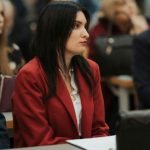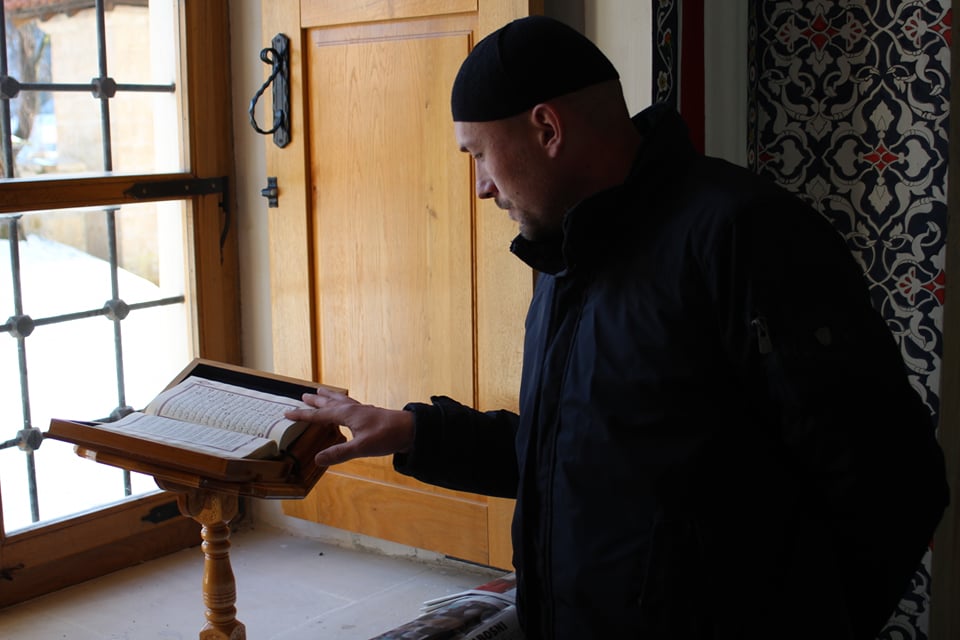
During the war in Bosnia and Herzegovina, many religious buildings and structures were demolished, and items, including Holy Books (the Qur’an, Bible, Torah, and Haggadah), were burned or displaced. Numerous families of different ethnicities have preserved some of these items and once they got the opportunity, they returned them to where they belong.
Numerous examples of the safekeeping and return of religious items can be found in Sarajevo, Goražde, Foča and Mostar, that is, in most parts of Bosnia and Herzegovina, where people have chosen sacredness and respect for other ethnicities over destruction.
Representatives of various religious institutions agree that in Bosnia and Herzegovina, people have respected each other and the richness of their diversity for centuries. The Preservation and return of religious items, according to Fadil Effendi Arifović, is a lighthouse and serves as a message against retrograde thinking and politics, because in the end, good defeats evil.
Eli Tauber, Advisor for Culture and Religion to the Jewish Community in BiH, believes returning religious items to be invaluable in terms of preserving the identity of a believer and a specific religious community.
„What adorns the people of Bosnia is that special relationship towards different groups that is implanted within them and the fact that someone belongs to another nation and professes another religion is not something which divides us, but rather, what unites and connects us. There has always been that trust and understanding here, in both good times and bad. But above all, honesty and respect veils Bosnian people. Particular care is taken not to let a child sing if someone else is grieving, but if someone’s days of joy have come, we rejoice that just as they do“, said Tauber.
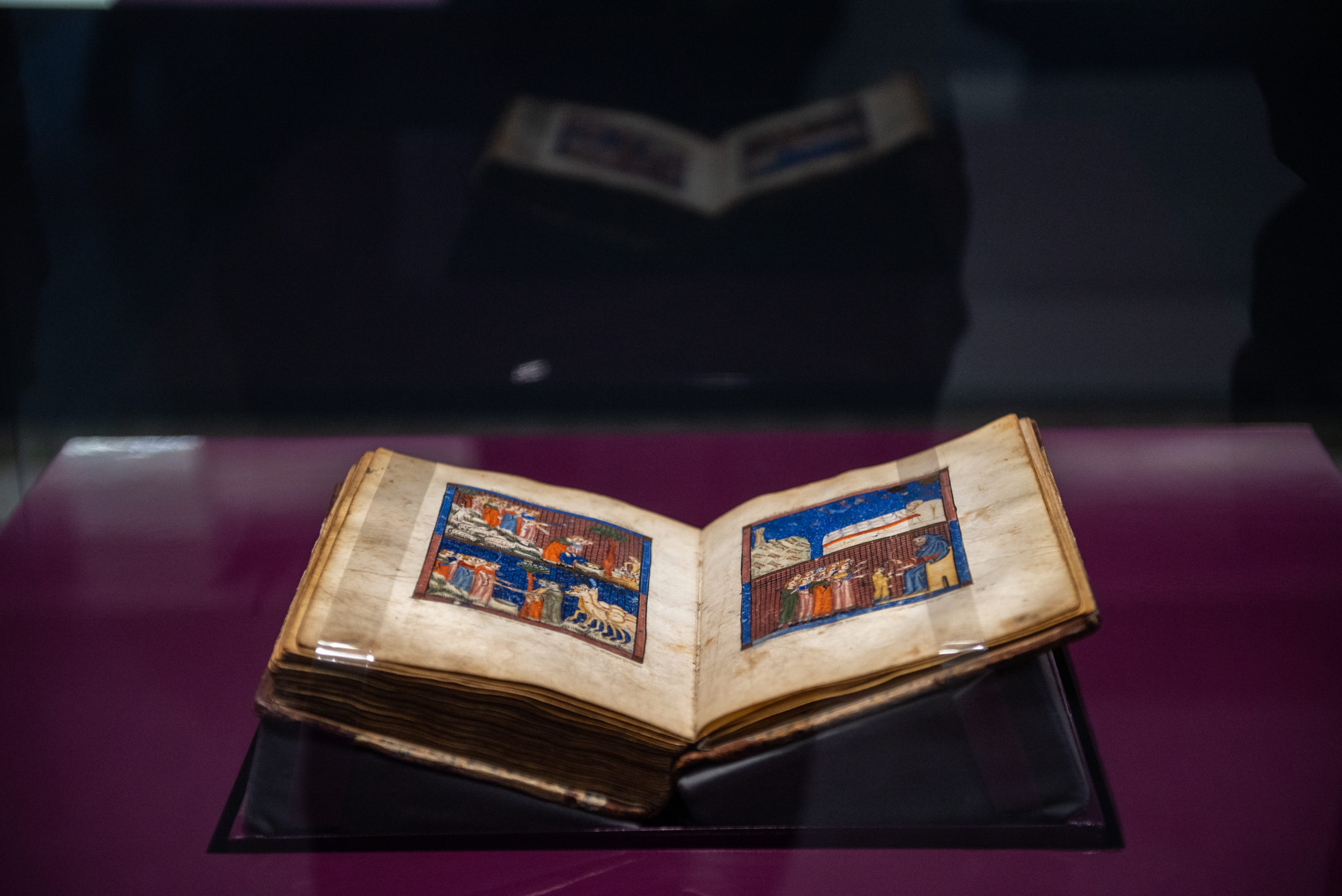
According to Professor Dino Abazović from the Faculty of Political Sciences, University of Sarajevo, the return of religious objects is important in terms of restoring trust in building interpersonal relations, in other words that despite the ongoing political and social climate it is possible to live in Bosnia and Herzegovina while cherishing the values of humanity and civilization.
Bible returned to the Parish Office in Goražde
Jasmin Mujagić from Goražde found a Bible (Catholic Holy Book) in the attic of a house his family bought in 2007. When he found the Bible, he said, he thought of nothing but to leave and preserve it. After 13 or 14 years, Mujagić returned the Bible to the Parish Office of the Church of the Drina Martyrs in Goražde.
„Everyone is happy when someone makes you happy, so you should make someone happy. That’s how I look at it, we need to appreciate each other. It is important for me to know that it returned to where it belongs,“ Mujagić said.
Josip Tadić, pastor of the Church of the Drina Martyrs in Goražde, said that a man, a muslim man, respects the Holy Book, just as he, as a Catholic, respects the Qur’an.
„That Bible has no financial value, but it will look nice in a museum of antiques we plan to open one day. The Bible now is in our office. It’s of a great value because it’s old and well-preserved,“ fra Tadić said.
Qur’an returned to Aladža mosque in Foča
The example of the return of a Holy Book can also be found in Foča, where a resident who wished to remain anonymous returned the Qur’an to the Aladža (Hasan Nazir) mosque in the spring of 2019. After the bombing of the Aladža mosque in Foča, a brave resident kept the Qur’an for 27 years. For security reasons, she returned the Qur’an through Mensur Kadrić from Goražde, asking him to pray for her.
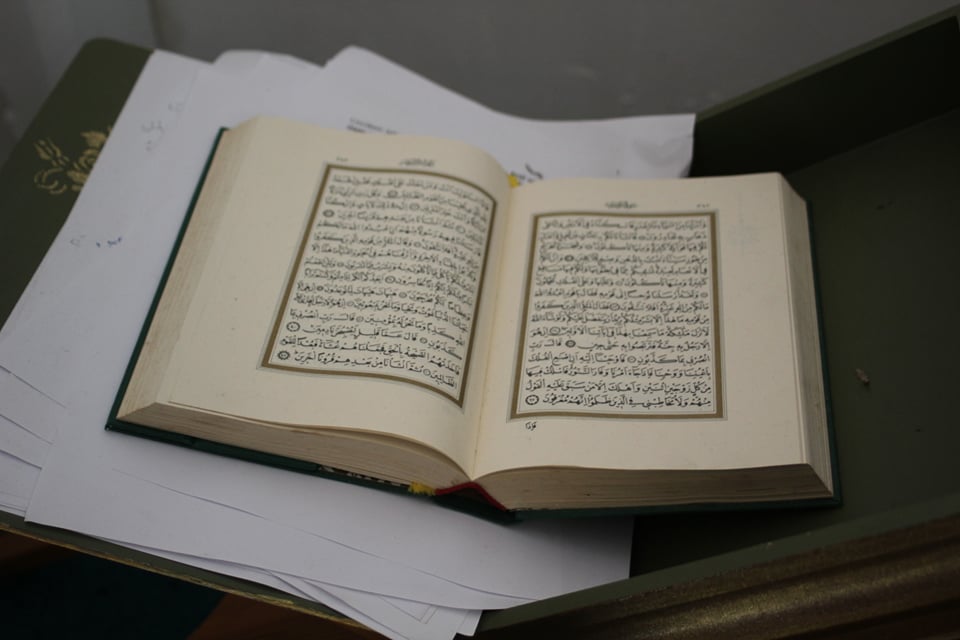
Fadil Effendi Arifović, imam of the Aladža mosque, said that the return of the Qur’an was a clear sign that, despite all the unfortunate events that befell Foča and its Bosniak population, there is hope for a brighter future.
,,On the one hand, this isn’t surprising because we have had such cases throughout our history in Bosnia and Herzegovina. Here, people have respected each other for centuries, differences have been respected, including religious beliefs. So that is one sign of a brighter future. It is up to us to try to help ourselves and all returnees and all people, if we are able. We need to build that relationship between Muslims, who are minority in Foča, and the neighbors of the Orthodox faith, who are the dominant majority, to create an environment for our people to feel comfortable and safe here“, said Effendi Arifović.
Icons returned to the Cathedral of the Holy Trinity in Mostar
Religious icons have been returned to the Serbian Orthodox Cathedral of the Holy Trinity in Mostar. Nedžad Jašarević obeyed the wish of his father, who for years kept the icons he found in one part of a demolished Orthodox Church and in the Cathedral during the war.
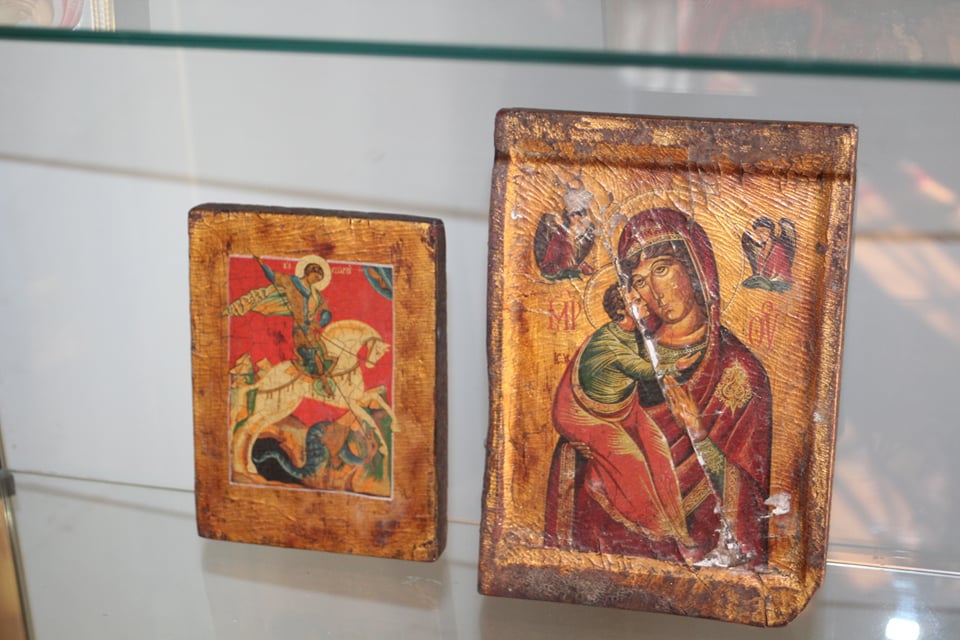
Someone told Nedžad’s father, who was a police officer, “Here is what I found.” He kept them until the Orthodox population returned, but unfortunately, he passed away last year. Before his death, Nedžad learned about icons. He agreed with his mother to donate them around Orthodox Christmas, January 7.
Jašarević said that the reaction of the Orthodox population and officials was incredible, even though they have known each other for a long time and are on good terms.
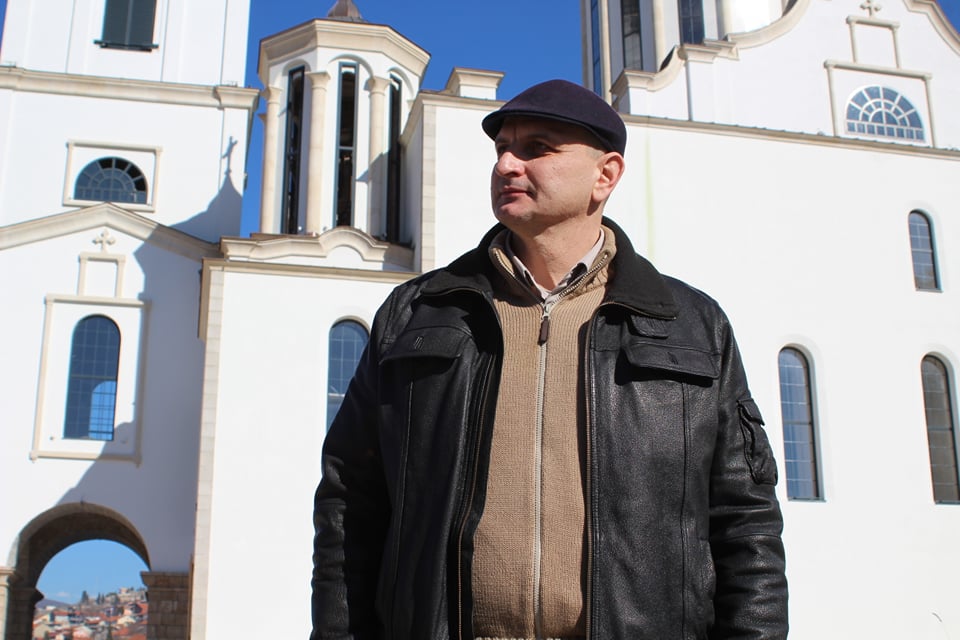
,,This is a human thing to do. We are familiar with the return of religious objects to other denominations as well. There is only one difference here: good and evil, good and bad people. Let’s say that the politics are clouds high in the sky, and that ordinary people have their feet on the ground. Ordinary people work and socialize and drink coffee, have barbeques and are the godfathers of other people’s kids. And then watch news in the evening and see that the political ideologies poison relations among ordinary people. I just hope these ideologies will not win over, even though it was politicians that started the wars and not ordinary people,“ said Jašarević.
The priest, Duško Kojić, the parish priest of Mostar, said that he had been on religious duty in Mostar for two years and that he had never had an unpleasant experience or felt like a minority.
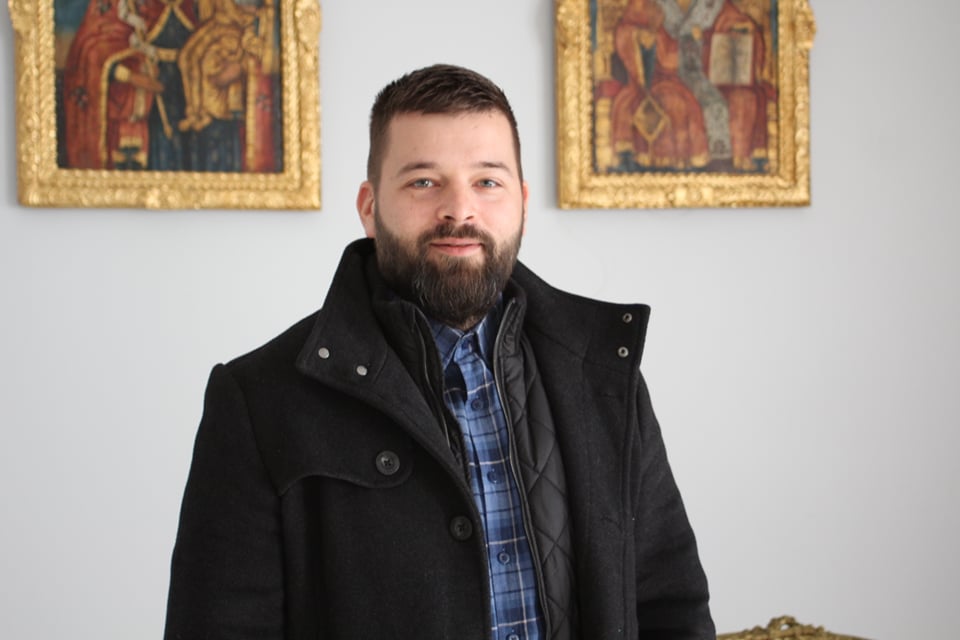
,,The people of Mostar perceive this church as their own, regardless of their religion or nationality. And that’s nice. Of course no one is happy that this church was demolished, but it’s nice to be part of the restoration in this way, because we are all trying to reconstruct it and we are all happy about it“, said Father Duško, commenting on the humanitarian act of the Jašarević family.
Homecoming of Haggadah to Sarajevo
The Sarajevo Haggadah, a Jewish ritual book containing biblical stories, prayers and psalms related to the Passover holiday dedicated to the liberation of the Jews from Egyptian slavery, was returned to BiH last year, to the National Museum, where it was open to visitors.
Tauber said the Haggadah is undoubted proof of the survival and human flourishing of the Jewish community in the neighborhood. In Bosnia and Herzegovina, as he said, there has always been trust and understanding, but above all honesty and respect.
,,Every war takes away a large number of relics and thus impoverishes one religious group presenting a heavy blow to civilization in general. A portion of the Jewish religious books perished in the fire that engulfed the City Hall. One part was also saved, but never returned to the synagogue. During World War II numerous Torah and religious books were burned or displaced. Sarajevo was left without its copy of the Torah. It is fortunate that in Travnik they preserved one scroll of Torah in the monastery in Travnik, and after the war they brought it to Sarajevo and handed it over to the synagogue“, stated Tauber.
What unites all the people who have preserved religious items and returned them to where they belong is the pursuit of good and mutual respect. Jašarević said that he teaches his children to look at others only to see if they are good or bad people.
,,If your relative is someone bad, it doesn’t mean you need to take care of him, you can help him, but you can’t take care of someone who isn’t good. On the other hand, if someone is of another faith, and he is a good person, then it cannot be ruled out that you will go to the cinema together, to the sea, that you will drink coffee together. Young people should be careful and socialize, not to ask who is who. These are very simple divisions: good and bad“, explained Jašarević.
“Our coexistence is imposed upon us”
Effendi Arifović said that he does not like the word coexistence, which is being used more and more. „The word coexistence is imposed upon us. As soon as you have coexistence or tolerance, then you have to endure someone. But reality is different, because people in the Balkans have lived together, not next to each other, but together. They shared both good and evil. We are trying to promote these beautiful gestures and to show that no savages, no barbarians live here who need to be taught about tolerance“, believes Effendi Arifović.
The parish priest of Mostar, Father Kojić, does not think that those that live, work and socialize with people of different identities are a minority. There are many people who live, work and socialize with people of different identities, but such people do not have enough media exposure. Mujagić says that he was the happiest when he had the opportunity to make Catholics happy in Goražde, and Tauber believes that being different from others is not something that divides people, but on the contrary, connects.
„These examples of return are extremely important for restoring trust in building better interpersonal relationships,“ Abazović said. In terms of dealing with the past, Professor Abazović said that we are witnessing a positive side of religious memory that is based on forgiveness and not resentment: „Forgiveness certainly does not mean forgetting, but opposing resentment.“
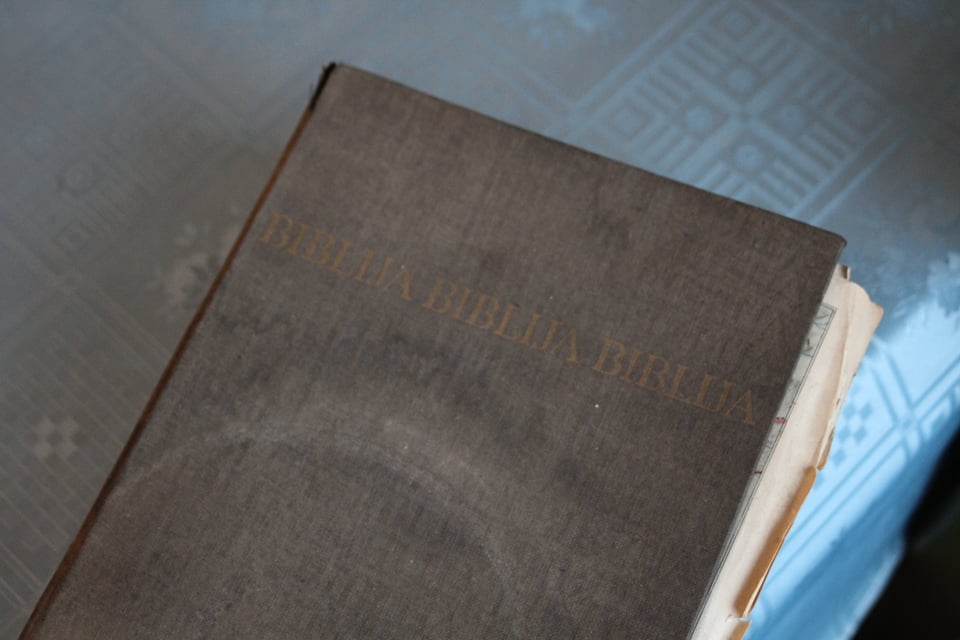
Due to the prevailing climate of mistrust in our post-conflict society and the severely impaired capacities of so many to distinguish good from bad, Abazović explains that, although gestures of humanity to return religious items may seem too late, it is never too late to be good.




